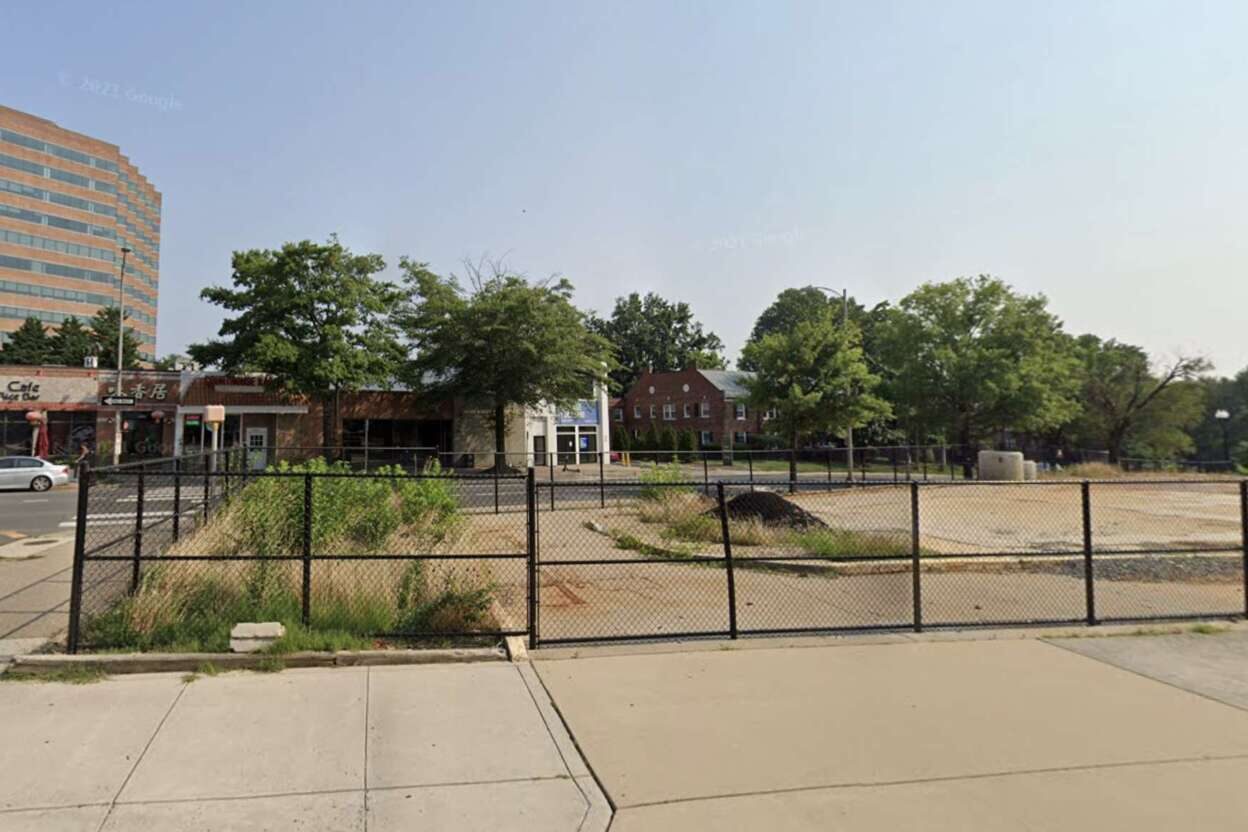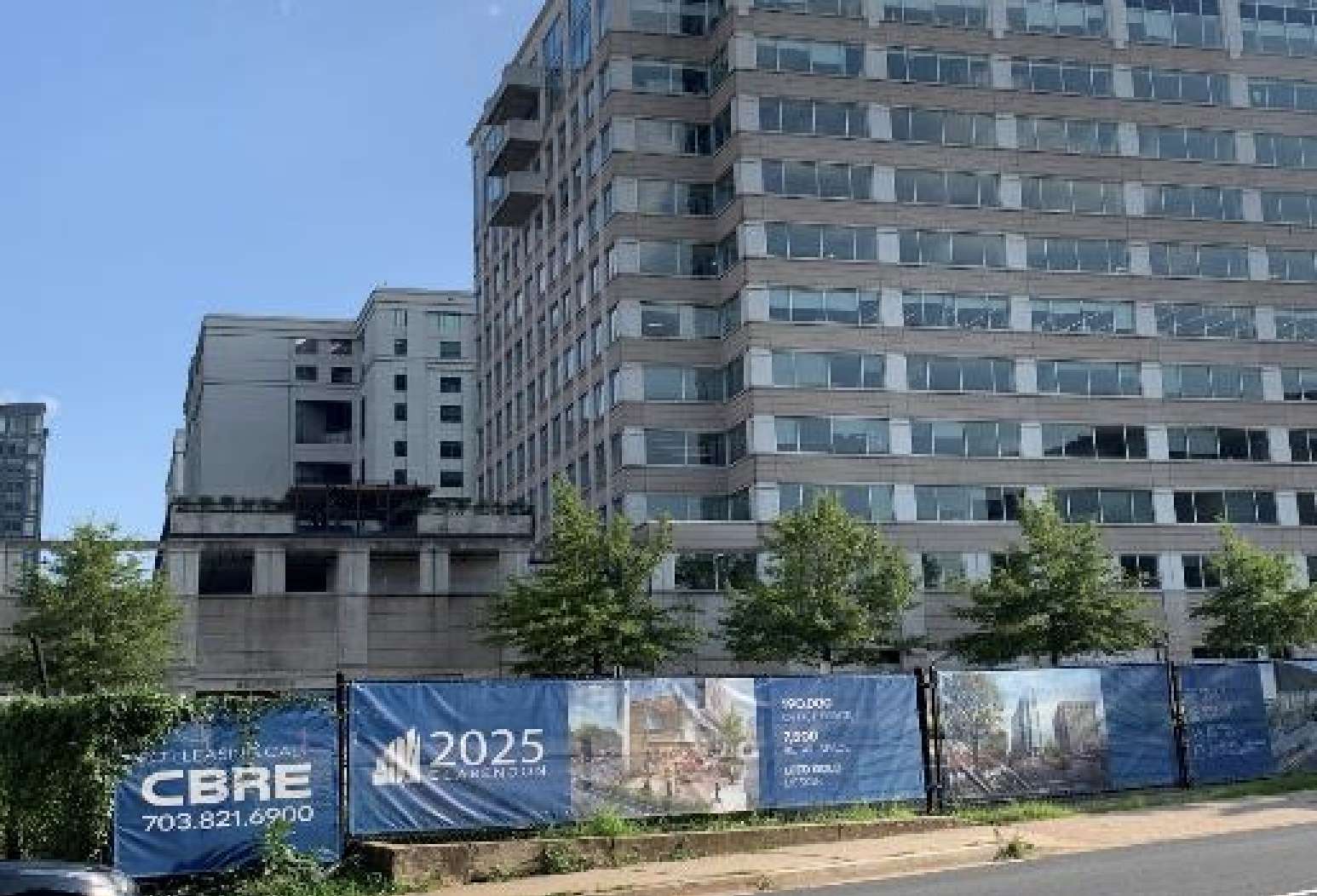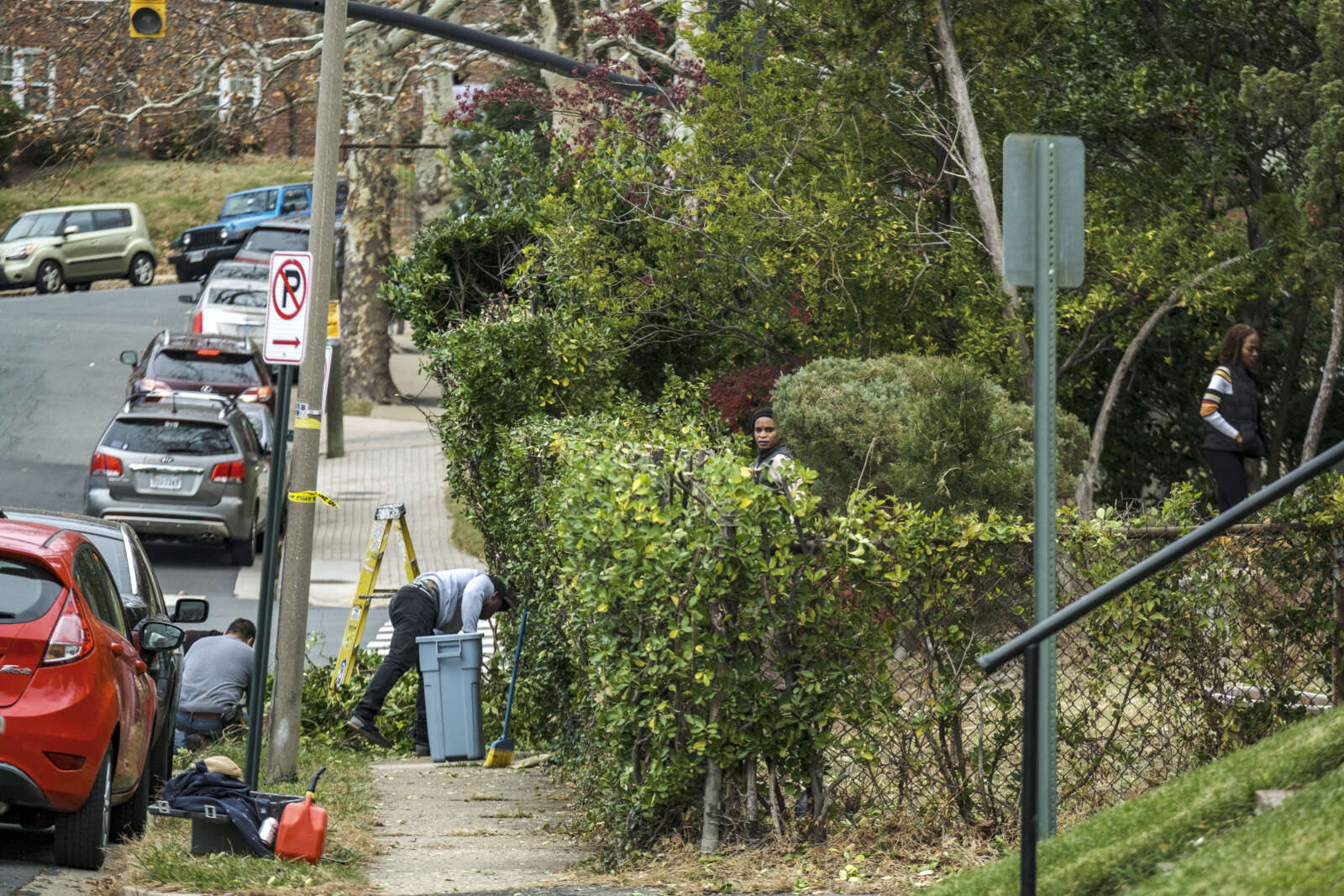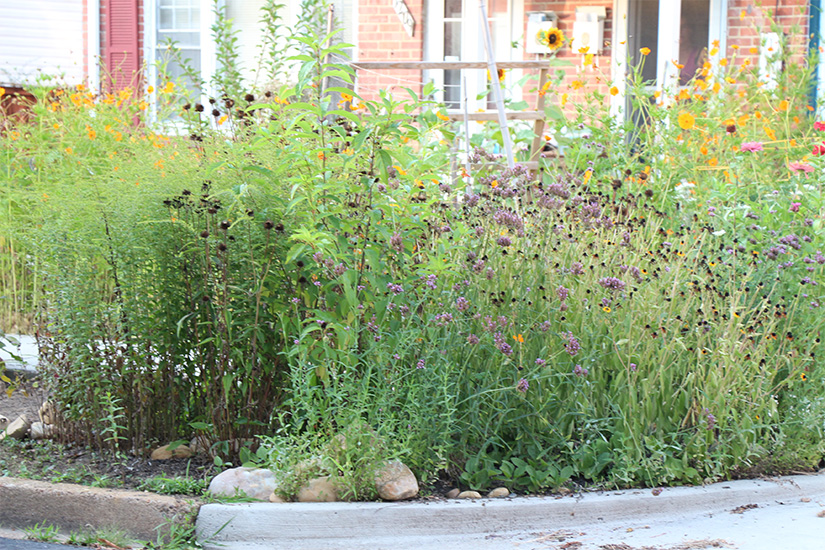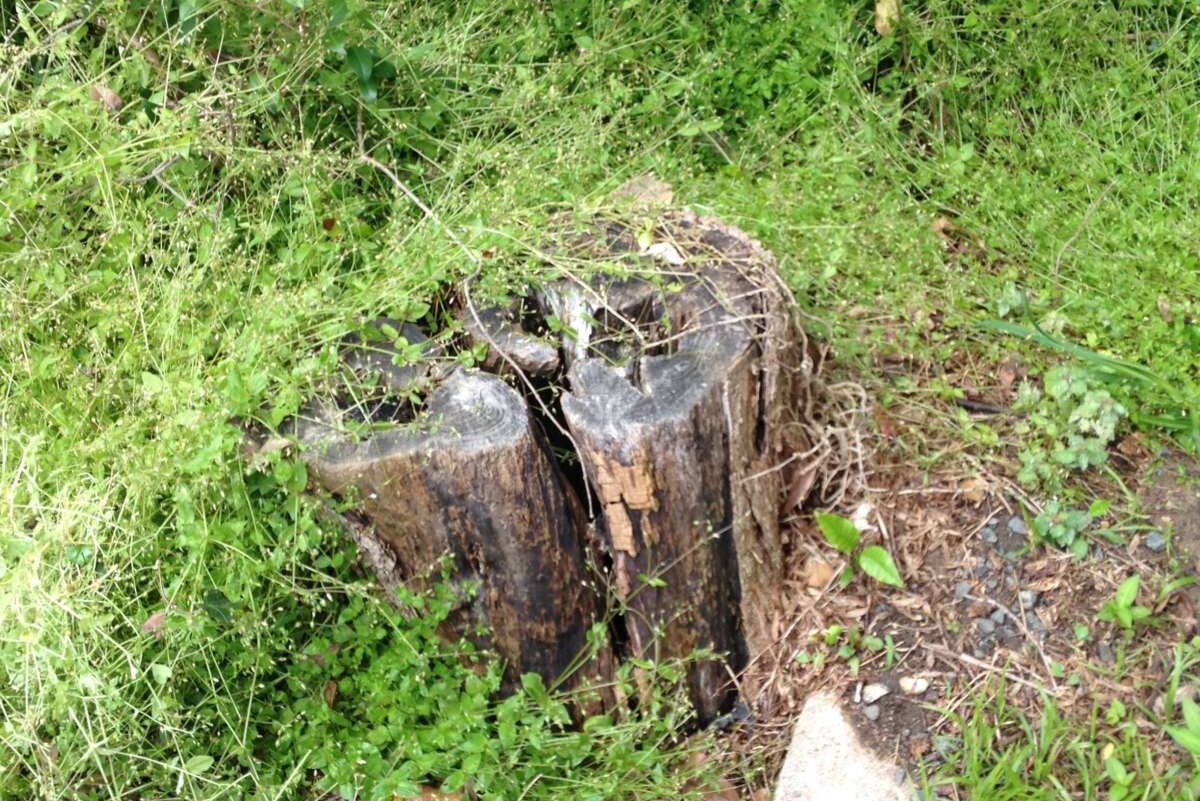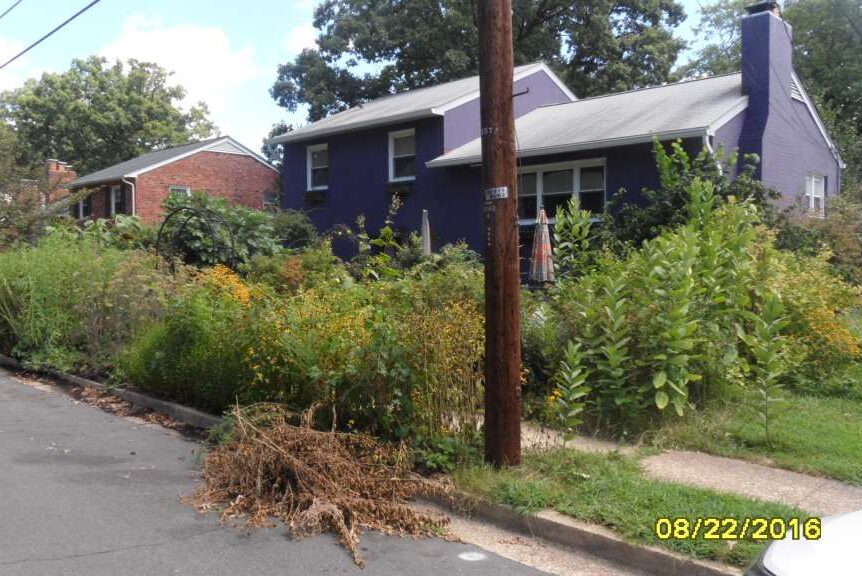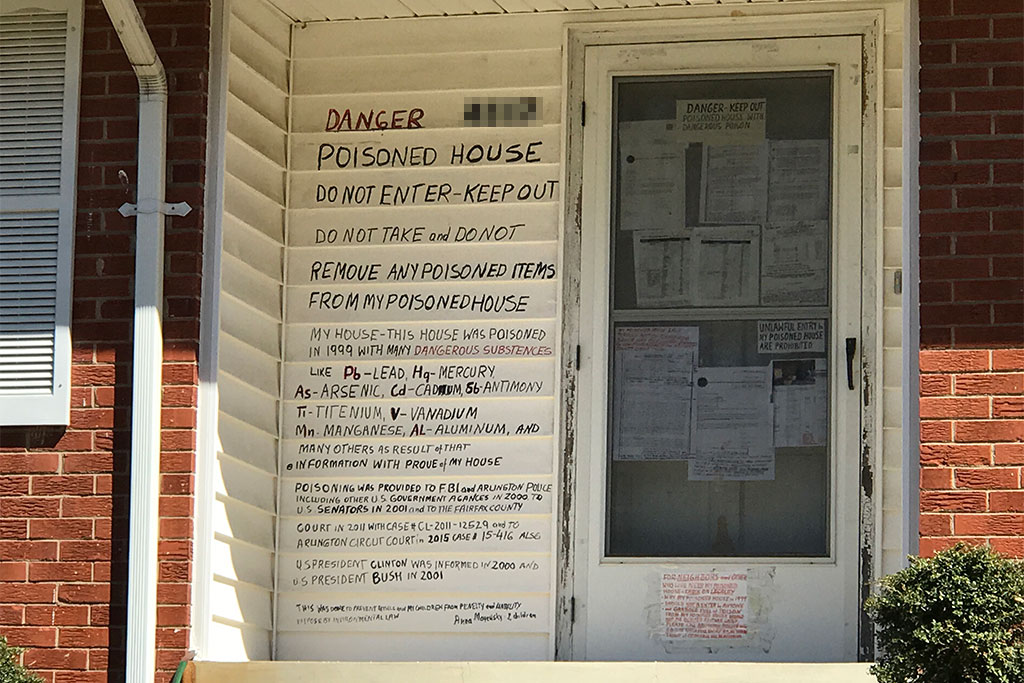Arlington is poised to take a proverbial weed whacker to commercial properties with overgrown lawns and all properties with obstructive vegetation.
Last month, a proposal to change the ordinance pertaining to the condition of private properties was added to the Arlington County Board’s agenda but was subsequently removed because the proposal needed additional technical work, says Dept. of Community Planning, Housing and Development spokeswoman Erika Moore.
The changes would strengthen the county’s ability to enforce violations such as unmaintained lawns and vegetation, per the January report, which ARLnow reviewed before it was taken down.
The measure is set to appear on the Board’s February agenda, Moore said, confirming the substance of the proposal remains the same. The Board will meet on Saturday, Feb. 18 and again on Tuesday, Feb. 21.
Commercial properties would be added to a provision that previously only held residential property owners accountable for cutting grass and weeds and maintaining lawns. County Manager Mark Schwartz would then be able to take “corrective actions” when a property owner fails to trim back “obstructing vegetation,” per the report.
The January draft also proposed increasing fines for property owners who fail to do more upkeep to resolve civil citations.
“These increases are sought to provide a stronger financial deterrent, particularly in cases where private property is held by commercial ownership awaiting development,” the report said.
For example, back in 2020, some residents complained about trash in and around the vacant Wendy’s lot at 2025 Clarendon Blvd in Courthouse. The fast food restaurant had been torn down in 2016 to make way for an office tower that never came and instead was used as a construction staging area for a nearby redevelopment. The property since changed hands and construction of an apartment building started last fall.
The report noted that the ability of the code enforcement division of CPHD “to abate persistent, longstanding violations has become less effective.”
“This is due to a variety of factors, including unwillingness to comply by some property owners, but also legal ambiguity concerning what specific powers and processes could be implemented in seeking corrective actions,” it said.
Moore previously told ARLnow the amendments are not related to any specific community complaints.
“The amendments… are being made because there are conflicts with other local and state ordinances, and clarity is needed,” she said last month. “Commercial properties are being added to the section on tall grass and weeds not because of conflicts but to clarify the County’s enforcement authority on these properties.”
There were 609 complaints from the community in 2022 via phone and email primarily, we’re told. Arlington’s current system that stores complaints does not categorize them, but the county is moving to a new complaint tracking system at the end of 2023 where some of these data points, like theme, will be available, she said.
As for fees, the January draft stipulated that first-time lawn maintenance or trash violation fines would be $100, then $150 for subsequent violations, with no more than one violation issued every 10 days for a maximum penalty of $3,000. First-time obstructive vegetation fees would be $50 and subsequent, separate violations would not exceed $200. Penalties could not exceed $3,000 in a 12-month period.
Per the January draft, the county may also remove provisions about rodent infestations and stored, abandoned or inoperative cars. These two topics are already covered under Virginia Maintenance Code and the local zoning ordinance, respectively.
Some Arlington residents like their vegetation tall, however, and that has caused problems in the past. Some eight years ago, a few residents attained local notability for fighting dictas from the county to trim back tall vegetation.
Five years ago, Schwartz noted that neighbors seemed to be calling the county more frequently to report maintenance code violations rather than addressing these grievances among themselves.
The remarks came a few months after mounting complaints about a home in the Arlingwood neighborhood with signs and handwriting saying the residence was poisoned. Code enforcement could only request the homeowner address the overgrown yard.


